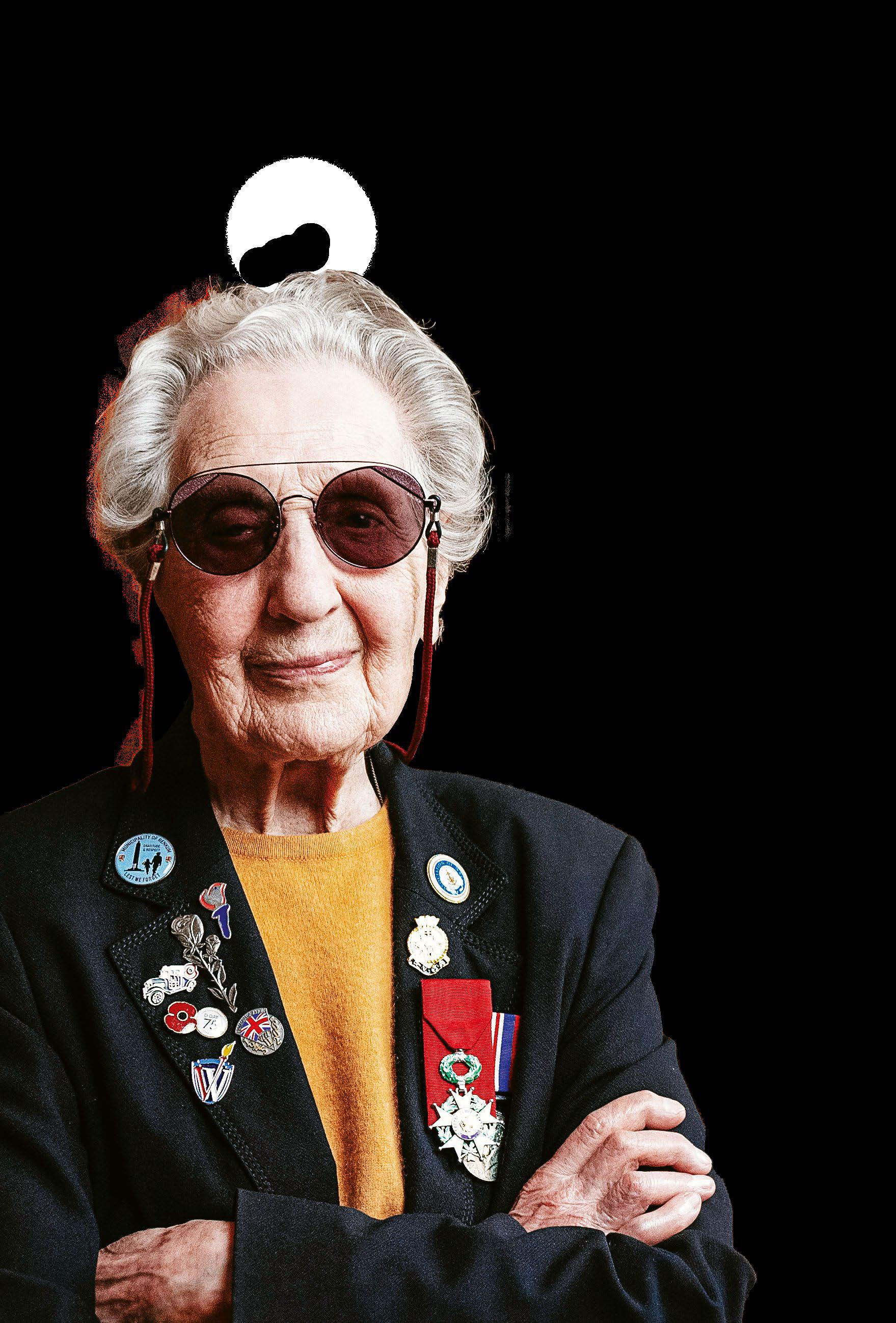Try GOLD - Free
UNDERGROUND WREN
History of War
|Issue 133
Deep in the bowels of Fort Southwick, radio operator Marie Scott was one of the first to hear reports as Operation Overlord got underway, passing critical communications between the men on the beaches and high command

Marie Scott was just 13 at the outbreak of the Second World War, and four years later she decided it was time to play her part on the home front. However, dreading the prospect of toiling in the fields with the Women’s Land Army, she utilised her switchboard operating skills, which made her an excellent candidate for the Women’s Royal Naval Service (Wrens). After a short time training at Mill Hill, Scott was transferred to Fort Southwick, Portsmouth. There, she was placed on the communications frontline. Little could the teenager have known, she would be taking part in one of the most important operations in world history. Working deep in the tunnels on the switchboard before becoming a VHF (Very High Frequency) radio operator, she was about to play a vital role in Operation Overlord.
Aged 97, Scott is now a retiree living in New Malden, South London. She spoke to History of War about growing up in London during the war, her time serving with the Wrens and her thoughts on remembrance as D-Day reaches its 80th anniversary.
A teenager at war
When Britain declared war on Nazi Germany, Scott was living with her family in London. Though the conflict precipitated the mass evacuation of children from the capital, her parents hated the idea of the family being separated, so they remained in London, despite the relentless bombing. The constant danger terrified Scott. “I remember one time when the Luftwaffe bombed the docks for two or three nights in succession,” she recalls. “They obliterated the docks, and the sky was red all over London. After that, we had the V-1s and V-2s. There’s nothing worse than knowing that when you hear the engine cut out, there’s going to be an explosion.”
This story is from the Issue 133 edition of History of War.
Subscribe to Magzter GOLD to access thousands of curated premium stories, and 10,000+ magazines and newspapers.
Already a subscriber? Sign In
MORE STORIES FROM History of War

History of War
FLYING INTO HISTORY ENOLA GAY
The first atomic bomb was dropped on Japan by an American B-29 bomber, preceding the country's capitulation in WWII. Here navigator Theodore Van Kirk recalls his experience of the day that changed history
7 mins
Issue 149

History of War
PUTIN'S SUBMARINE FLEET
From the Cold War to modern operations, the threat beneath the waves has been steadily building, and could be about to escalate
4 mins
Issue 149

History of War
ON SILVER WINGS
THIS MOVING BIOGRAPHY OF AN 'UNKNOWN' WWII RAF FIGHTER ACE CHARTS DESMOND IBBOTSON'S CAREER, THE STORY ENDING WITH A TWIST WHEN HIS REMAINS ARE DISCOVERED IN ITALY IN 2005
2 mins
Issue 149

History of War
CAMBODIA vs THAILAND ROOTS OF THE BORDER WAR
July 2025's clashes are the latest in a long frontier conflict that has gone unresolved, from the era of warrior kings to smart bombs
4 mins
Issue 149

History of War
TASK FORCE GREMLIN
At the end of WWII the Japanese Imperial Army Air Force was conscripted into the Royal Air Force in Southeast Asia
7 mins
Issue 149

History of War
RAF RETURNS TO NUCLEAR
Nearly 30 years after giving them up, the RAF is poised to reacquire air-dropped nuclear weapons
3 mins
Issue 149

History of War
NO MORE NAPOLEONS
A MAGISTERIAL SURVEY OF NAVAL POWER AND POLICY
2 mins
Issue 149

History of War
STALIN'S BLITZKRIEG
In the final month of WWII, the Red Army launched a devastating strike into Manchuria, opening a new front with Japan and threatening invasion of the Home Islands
10 mins
Issue 149

History of War
BALACLAVA POCKET WATCH
This William IV silver timepiece and its owner survived the Charge of the Light Brigade at the Battle of Balaclava
1 mins
Issue 149

History of War
THE END OF THE SPY?
Human intelligence is a dying art, but it is still crucial for security agencies worldwide
3 mins
Issue 149
Listen
Translate
Change font size
